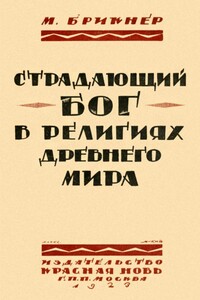Религия в сознании | страница 18
Alles, G.D.
2004 “Speculating on the Eschaton: Comments on Harvey Whitehouse’s Inside the Cult and The Two Modes of Religiosity Theory.” Method and Theory in the Study of Religion 16(3):266‑291.
Andresen, Jensine
2001 (ed.) Religion in Mind: Cognitive Perspectives On Religious Belief, Ritual, and Experience. Cambridge: Cambridge University Press.
Atran, S.
2002 In Gods We Trust: The Evolutionary Landscape of Religion. Oxford: Oxford University Press.
Barrett, J.
1999 “Theological Correctness: Cognitive Constraints and the Study of Religion.” Method and Theory in the Study of Religion 11:325‑339.
2000 “Exploring the Natural Foundations of Religion.” Trends in Cognitive Sciences 4:29‑34.
2004 Why Would Anyone Believe in God? Walnut Creek, CA: AltaMira Press.
Bering, J.M.
2004 “Natural Selection is Nondenominational: Why Evolutionary Models of Religion Should be More Concerned with Behavior than Concepts.” Evolution and Cognition 10(1):126‑137.
2005 “The evolutionary history of an illusion: Religious causal beliefs in children and adults.” In B. Ellis and D. Bjorklund (eds.), Origins of the Social Mind: Evolutionary Psychology and Child Development, New York, NY: Guilford Press, 411‑437.
Bering, J.M., and D.F. Björklund
2004 “The Natural Emergence of Reasoning about the Afterlife as a Developmental Regularity.” Developmental Psychology 40:217‑233.
Bering, J.M., and T.K. Shackelford
2004 “The Causal Role of Consciousness: A Conceptual Addendum to Human Evolutionary Psychology.” Review of General Psychology 8:227‑248.
Bloch, M.E.F.
1998 How We Think They Think: Anthropological Approaches to Cognition, Memory, and Literacy. Boulder, CO: Westview Press.
Boyer, P.
1990 Tradition as Truth and Communication: A Cognitive Description of Traditional Discourse. Cambridge: Cambridge University Press.
1992 “Explaining Religious Ideas: Elements of a Cognitive Approach”. Numen 39:27‑57.
1993a (ed.) Cognitive Aspects of Religious Symbolism. Cambridge: Cambridge University Press.
1993b “Cognitive Aspects of Religious Symbolism.” In Boyer 1993a:4‑47.
1994 The Naturalness of Religious Ideas: A Cognitive Theory of Religion. Berkeley: University of California Press.
1996 “Religion as an Impure Object: A Note on Cognitive Order in Religious Representations in Response to Brian Malley.” Method and Theory in the Study of Religion 8(2):201‑214.
2001 Religion Explained: The Human Instincts that Fashion Gods, Spirits and Ancestors.



